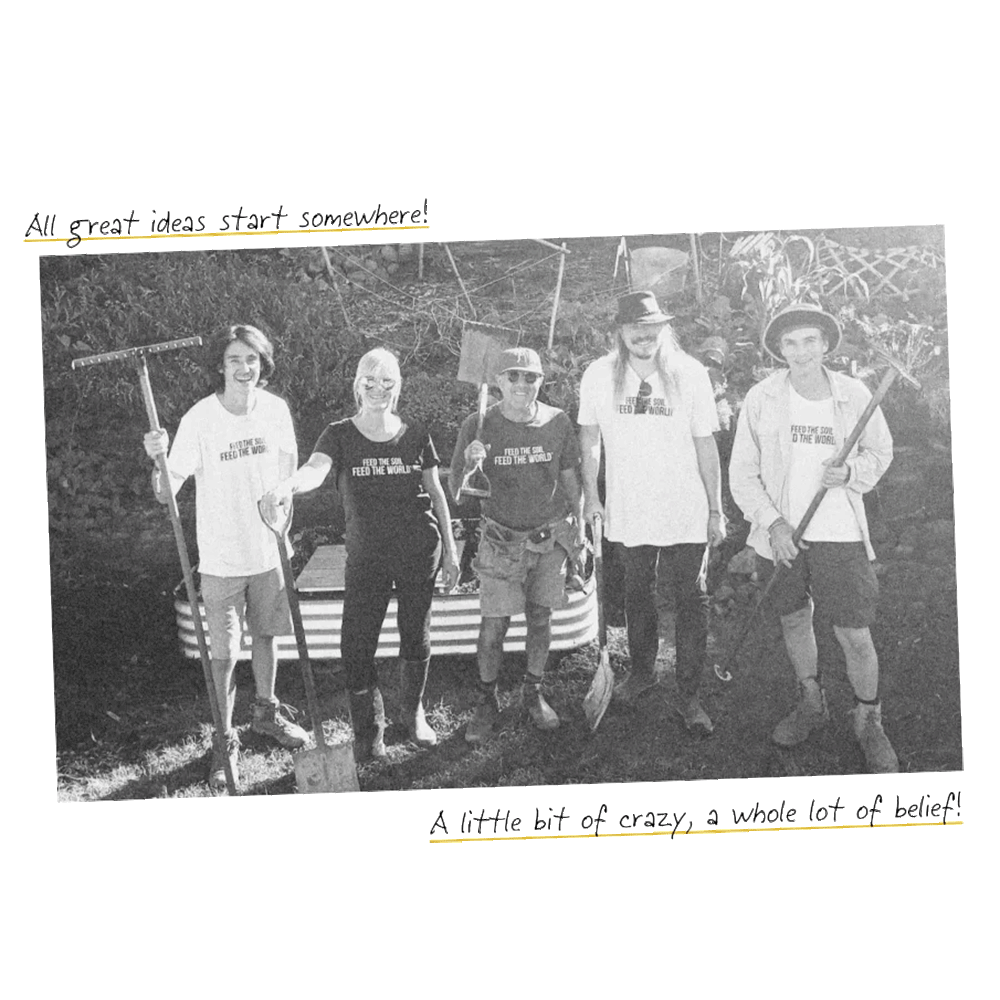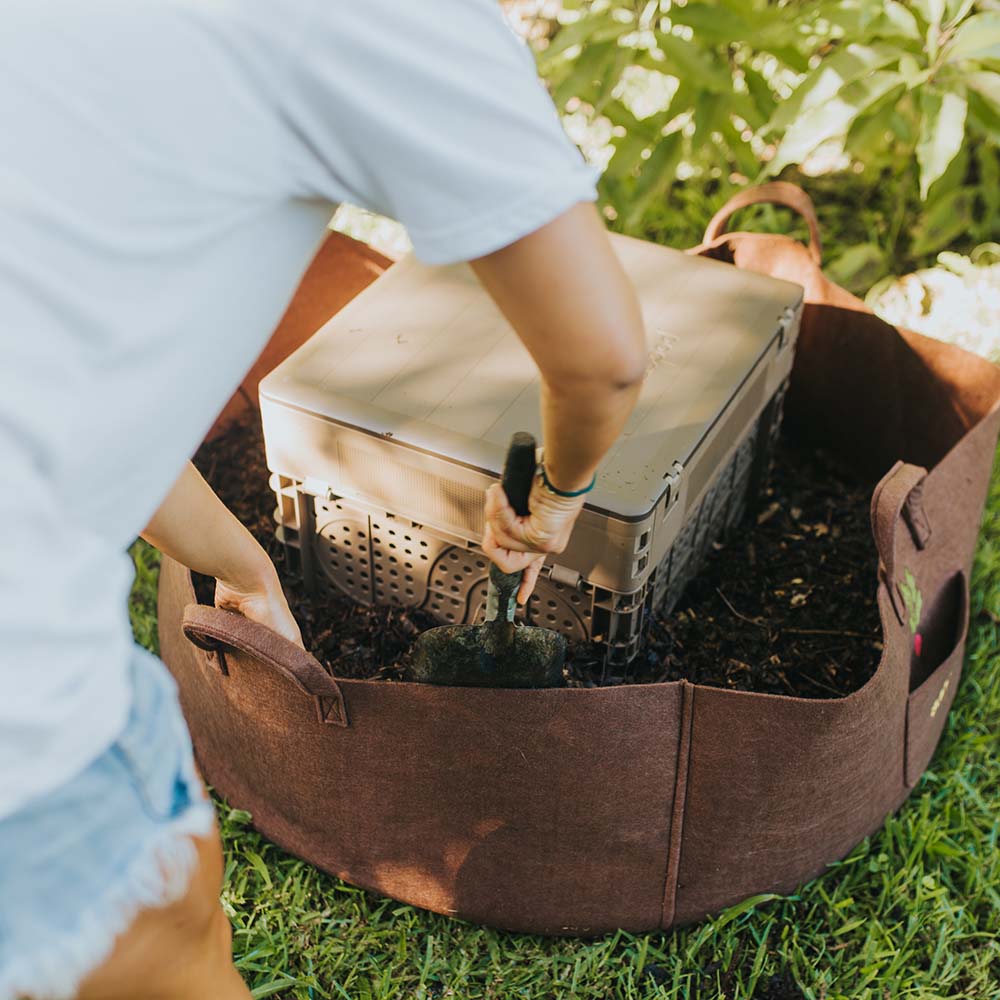Can You Compost Coffee Grounds?
In this article:
There’s nothing quite like that cup of morning coffee to get your day off to a bright start! It’s a ritualistic rite of passage a lot of people worldwide simply can’t do without! Which all explains why one of the most frequently asked questions we encounter is “can you compost coffee grounds?”
We’re happy to report that the goodness of coffee isn’t restricted to your morning wake-up call! Coffee grounds hold multiple benefits for your garden and its residents, from plants to the worms and microbes!
Now, let’s answer that question for you…

Can you Compost Coffee Grounds?
Yes, you can definitely compost coffee grounds. Whether you’re a traditional composter or use a vermicomposting worm farm like Subpod, coffee grounds are a valuable addition to your compost bin. So don’t give up on that morning cup of coffee!
Coffee grounds contain an array of nutrients, including nitrogen, potassium and phosphorus, which are essential for plant growth, and also have a positive effect on the structure of your compost.
Composting coffee grounds helps break down the nutrients into a state that is absorbable by plants. Here’s the good thing about coffee though, and we’ll discuss this further down - applying coffee directly to your garden is also beneficial!
First, there’s something we need to clear up about coffee in compost… 
Coffee Grounds: Green or Brown?
If you’re a seasoned composting pro, you’ll know what we’re talking about when we mention greens and browns. Let’s explain it a little for anyone just starting out in this space. The organic materials that you apply to your compost can be classified into greens and browns:
Greens: These are nitrogen-rich materials, including all the food waste from your kitchen and things like freshly cut grass or pulled weeds. Greens have a higher moisture content.
Browns: Browns are carbon-rich, drier materials like dry leaves, sawdust, cardboard or paper.
We’ve already established that coffee is rich in nitrogen. This means, that despite its brown colour, coffee is classified as a ‘green’!
For effective composting, you need to apply organic materials in a ratio of two to three parts brown to one part green. You can adjust this as needs be though, for example if your compost is too wet, add extra carbon.
Things to Know Before Composting Coffee Grounds
Dedicated composters always do their background research on the organic materials they use. It’s probably why you’re here! There are a few things you should know about coffee grounds and compost, which we will explain to you now.
Coffee Grounds and Acidity
Coffee itself is quite acidic, and many gardeners hold the viewpoint that coffee grounds are also acidic. Actually, the acid in coffee dissolves with the water, which explains why your cup of coffee is high in acid. The coffee grounds left over have a fairly neutral pH and won’t have any effects on the acidity of your compost.
Is Caffeine Bad for Compost?
A whole lot of caffeine definitely isn’t great for compost, or for a garden in general. But the quantities are pretty low in the daily dose of grounds you’re likely to add to your bin, so they shouldn’t have adverse affects. Just make sure you’re not applying a big load of grounds, unmixed with any other materials.
Caffeine is a Pesticide
Caffeine could actually prove beneficial to your garden rather than detrimental because it is said to deter snails and slugs. Some people reckon they even deter cats and ants from your garden!
Coffee Grounds Improve the Structure of Your Compost
Coffee grounds will improve the structure of your compost, boosting water retention, aeration and drainage. They also provide nitrogen for the microorganisms working to convert food waste into compost, helping speed up the process.
Worms Love Coffee Grounds
If you use a Subpod worm farm, you’ll be happy to know that your worms find coffee grounds delicious. Don’t be shy to mix them in with the other organic waste and feed them to your wriggly friends!
Can Coffee Grounds Be Used as a Soil Fertiliser?
You can apply your coffee grounds directly to your garden as a fertiliser. There are a couple of things you should be aware of before doing this though. Although the grounds are rich in nitrogen, this won’t be readily available to your plants. The coffee grounds need to decompose in order to release it, which is what happens in the composting process.
Adding coffee grounds directly will help with the soil structure and aeration of your soil though. Worms are very fond of them, so will be attracted to where you place the grounds in your garden. Plus, as we mentioned above they will repel slugs and snails!
You can use coffee grounds as a mulch on the top layer of your soil. Ensure you mix them in a bit with the soil, as if you don’t they’ll form a hard crust that keeps moisture from seeping into the earth.
How to Compost Coffee Grounds
Coffee grounds are one of the easier organic materials to toss into your compost bin. As they’re a ‘green’, you want to make sure you have your ratio of greens to browns right, then you mix them up and pop them into your compost. No extra care is required, just be sure to mix thoroughly and turn or aerate your compost as you normally would.
If your coffee comes with a paper filter, you can also include that in your compost. Paper is a ‘brown’ material so it is easily compostable and a good source of carbon. You can rip it up into smaller pieces if you like to speed up the decomposition process.
If you’ve come across a large quantity of coffee grounds, perhaps from your local cafe, you can upscale your coffee composting easily. You need to be careful to get your ratios correct if you do this. We’d suggest trying one half dead leaves with one half coffee grounds and seeing how it goes! You can always add more ‘greens’ or ‘browns’ if necessary.
How to Compost Coffee Grounds with Subpod
If you’re looking for a composting solution that easily slots into your busy life, a Subpod worm farm is it! Stylish and robust, Subpod is a vermicomposting setup that will turn your coffee grounds and other organic materials into ‘black gold’ compost fast. It only takes a few minutes a day to maintain - less time than it takes to drink a cup of coffee in the morning!
Subpod is an underground composting system, sitting semi-submerged in your garden with the lid protruding out the surface. You open it up, organic waste goes in and the worms and microbes get to work converting it to compost! Strategic ‘worm flow’ holes in the side of Subpod allow the worms to move around into the surrounding soil, spreading their nutrient-rich worm castings as they go.
Subpod is robust and durable, with the sturdy lid even doubling up as a garden seat! It’s also designed to resist pests and reduce odours, minimising the chances of upsetting any neighbours. Easy to set up, this beginner-friendly solution is an ideal introduction to the world of home composting.




